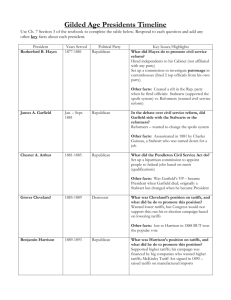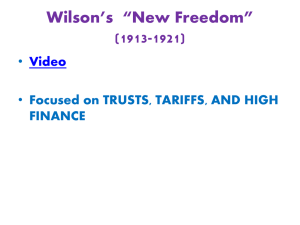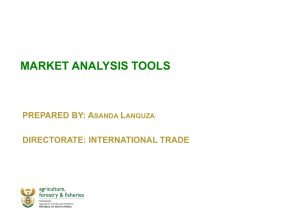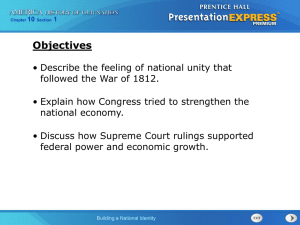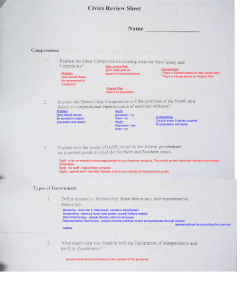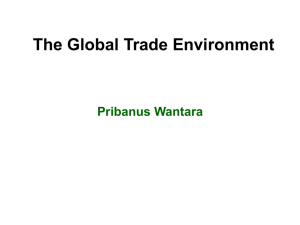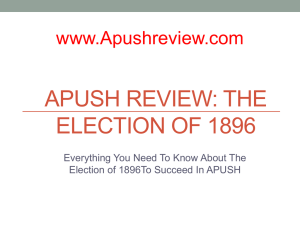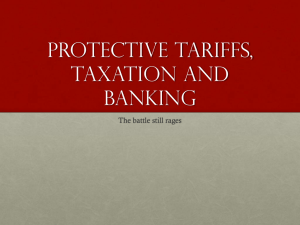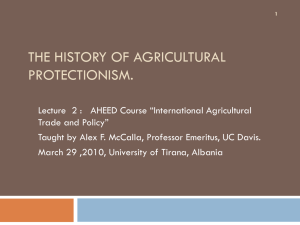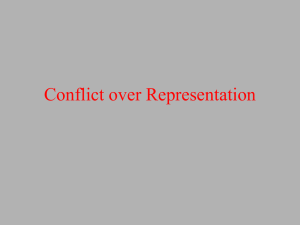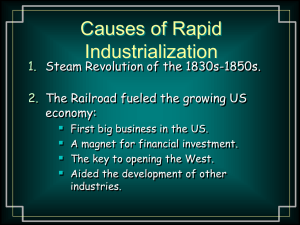Politics and Reform
advertisement
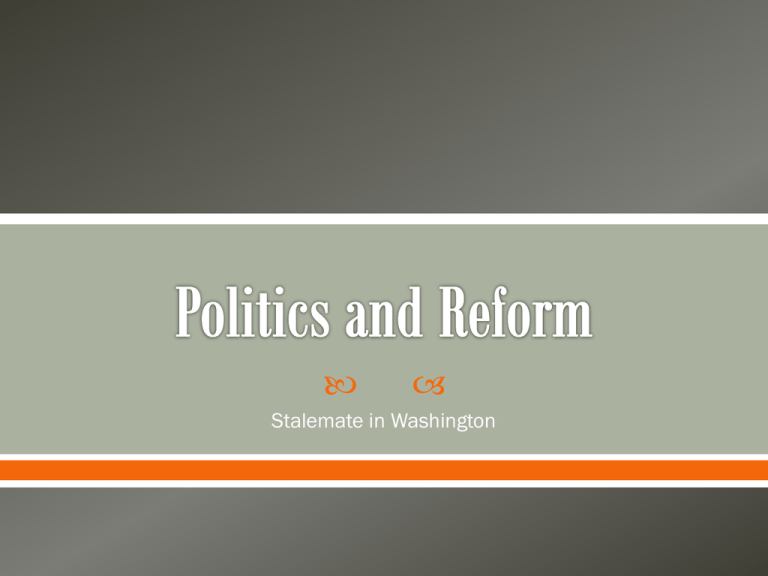
Stalemate in Washington Know the difference between a “stalwart” and a “halfbreed”. Discuss the doctrines of the Pendleton Act. Know what the republicans and democrats came to be known as. Know which two years a president lost the popular vote but won the election. Know what a “mugwump” was. Understand the power struggle between the states and the federal government in Wabash v. Illinois Discuss the doctrines of the Interstate Commerce Commission Explain what tariffs do and why many Americans in the 1880s believed that high tariffs were no longer needed. Also discuss the doctrines of the McKinley Tariff. Explain the doctrines of the Sherman Antitrust Act of 1890 and what made it ineffective initially. When Rutherford B. Hayes (Republican) entered the White House in 1877, he attacked the practice of patronage by appointing reformers to his cabinet and replacing officials who owed their jobs to party bosses. His actions infuriated New York senator Roscoe Conkling, who, like other local bosses of Republican political machines, was called a “Stalwart” in the newspapers. The Stalwarts were angry with Hayes for abandoning Reconstructions and allowing Democrats to regain political control of the South. Republican reformers like Hayes were called “Halfbreeds” by the Republican political machines like Conkling. -Stalwarts and Halfbreeds “Halfbreed”, James Garfield, for President (Republican reformer) “Stalwart”, Chester A. Arthur, for Vice President (Republican machine) A few months into his presidency Garfield was assassinated Arthur Garfield -The Pendleton Act The Pendleton Act. (A law to clean up the spoils system) Candidates competed for jobs through examinations. o Rather than being given jobs based on friendships or favors. Although President Arthur was a Stalwart, he supported the Pendleton Act. The Republicans were seen as the party of reform. Democrats portrayed themselves as the “party of personal liberty.” o Twice, in 1876 and 1888, a candidate lost the popular vote but won the election (This makes the current “electoral college” system controversial) o Republicans won four of the six presidential elections between 1876 and 1896. The Interstate Commerce Commission State of Illinois could not restrict the rates that the Wabash Railroad charged for traffic between states because only the federal government could regulate interstate commerce. Public pressure forced Congress to respond to the Wabash ruling. In 1887 Cleveland signed a bill creating the Interstate Commerce Commission. -The McKinley Tariff The McKinley Tariff lowered federal revenue and transformed the nation’s budget surplus into a budget deficit. -The Sherman Antitrust Act Sherman Antitrust Act of 1890. The courts were responsible for enforcement, however, and judges saw nothing on this vaguely worded legislation that required them to make big companies change the way they did business. Who were the “stalwarts” and a “halfbreeds”? What did the Pendleton Act require of federal workers? What did the republicans become known as? The democrats? In which two years was a president elected after losing the popular vote? What was a “mugwump”? Explain the power struggle between the states and the federal government in Wabash v. Illinois. What did the Interstate Commerce Commission restrict? Explain what tariffs do and why many Americans in the 1880s believed that high tariffs were no longer needed. Also discuss the doctrines of the McKinley Tariff. Explain the doctrines of the Sherman Antitrust Act of 1890 and what made it ineffective initially. Explain what tariffs do and why many Americans in the 1880s believed that high tariffs were no longer needed. Explain what tariffs do and why many Americans in the 1880s believed that high tariffs were no longer needed. o Governments impose tariffs to protect weak domestic industries from foreign competition. Tariffs have the effect of raising the prices of manufactured goods. While protecting weak domestic manufacturing after the Civil War may have made sense, many questioned the necessity of maintaining high tariffs in the 1880s when large American companies were fully capable of competing internationally. High tariffs also forced other nations to respond in kind, making it difficult for farmers to export their surpluses.
